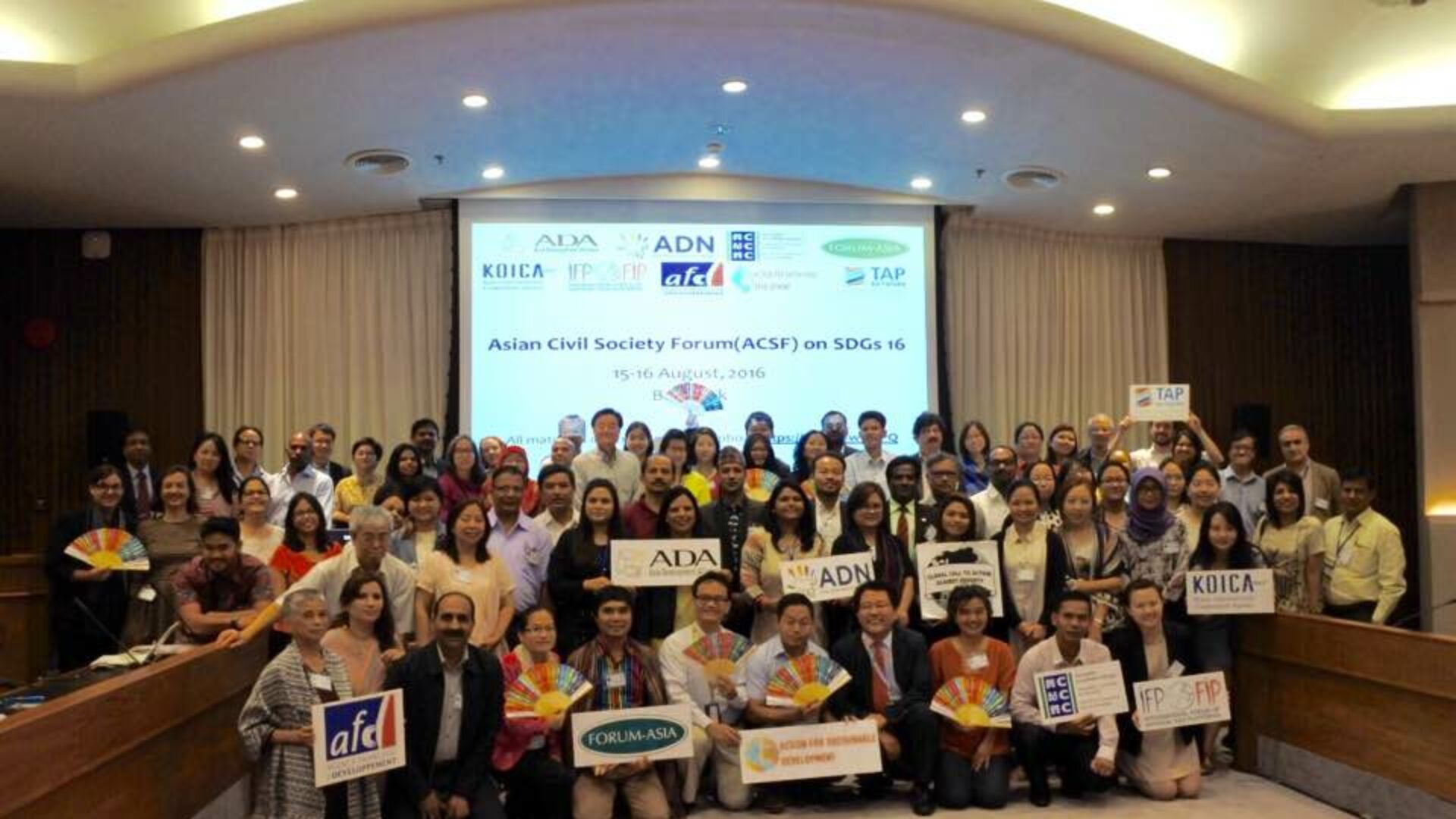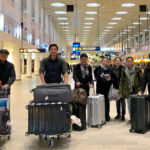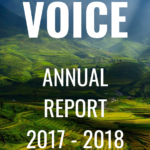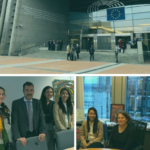Civil society across Asia is flowering but fragile
The proliferation of civil society organizations (CSOs) throughout Asia is having a significant impact on relations between the state and citizens, on the institutions of the state and on prevailing norms and values. At a recent conference organized by Akihiro Ogawa, professor of Japanese studies at the University of Melbourne, scholars from around the region gathered to assess civil society and the forces that support and threaten it. This gathering testifies to the expansion and deepening of civil society across Asia. While the flowering of civil society across the region is undeniable, the gains that have been made are fragile.
In recent decades the range of Asian CSOs has expanded rapidly, and their concerns now run the gamut from welfare, the environment, refugees, legal services and gender to counseling, trafficking, entrepreneurship, education and beyond. Most of these nongovernmental groups are small, understaffed and underfunded, but they persist because they must, and draw on the passion of the committed. There is no shortage of needs and public demands for the various activities CSOs engage in, yet they are also constrained by regulatory hurdles and wary, intolerant governments.
From Pakistan, India and Sri Lanka to Cambodia and Vietnam, illiberal democracies and authoritarian governments are targeting foreign funding because they suspect that CSOs are agents of globalization spreading Western values, ideologies and practices. These suspicions are fueled by concerns that CSOs are undermining and discrediting the state by engaging in advocacy for people and causes that have been marginalized and mistreated — for example, to further human rights, and on behalf of LGBT people or ethnic and religious minorities. By empowering people, CSOs challenge and subvert the state’s monopoly on power.
There are two major trends influencing the 21st century operating environment for CSOs in Asia: the spread of neoliberal economic policies and the rise and consolidation of illiberal democracies. Neoliberal economic reforms are varied, but they usually involve reducing the role of the state and cutting taxes and government budgets. The impact on vulnerable people in society can be catastrophic as programs aimed at mitigating poverty, improving living standards and addressing health and educational problems are slashed. Such reforms create a niche for CSOs as they respond to what is effectively an outsourcing of government services.
Problematically, neoliberal reforms tend to accentuate disparities and polarize society. Across the globe we are witnessing the marginalized respond to the broken promises of globalization and the gloomy omens they face. Pankaj Mishra, in “The Age of Anger: A History of the Present” (2017), captures the zeitgeist, explaining how the neoliberal democratic model is under siege because it is not delivering. The internet enables widespread awareness of what only some can attain. Envy, disappointment and anxiety are alienating even the relatively privileged in developing nations because they find limited opportunities and can only climb so high before they realize their dreams have been thwarted. It is this hothouse of discontent that fuels populist politics and breeds radicalism.
The other significant trend shaping the CSO ecosystem in Asia is the spread of authoritarian governance. Illiberal democracies such as Thailand, Cambodia, Vietnam, Laos and Malaysia hold elections, often feature prolonged one-party rule and embrace the rule of law only when convenient, while drawing on authoritarian practices to ensure that democracy stays tightly tethered. Cronyism, corruption and a lack of transparency are defining features of illiberal democracy, and in this age of anger, repression is the favored means of retaining power. The grass-roots wildfire of frustration sparked by neoliberal reforms and heightened disparities have drawn illiberal political responses from the ruling classes.
There is no single model of illiberal democracy, but in general they stifle political debate, engage in media censorship, resort to intimidation and limit space for political contestation. They breed intolerance, encourage bigotry, engage in “othering” minorities and create a hostile climate for CSOs. This is because civil society groups disseminate liberal values antithetical to reactionary agendas. In Asia, the winds of illiberalism are gathering momentum, shrinking the space for CSOs to operate at a time when they are more needed than ever due to neoliberal reforms.
Illiberal democracies also encourage uncivil hatemongering groups that are often connected with powerful political forces that benefit from their activism. The rise of extremist religious organizations is a transnational phenomenon in South and Southeast Asia. Moderate religious groups appear to have lost ground to less-tolerant ones that promote religious chauvinism. These benefit from powerful political patrons who see them as weapons to sideline opponents and foster an uncivil society.
The emergence of a vibrant civil society in many Asian societies is not an onward and upward process, depending not only on sustained citizens’ support and participation but also on shifting political winds. In some cases, partnerships between the state and CSOs have flourished and they have helped mitigate socioeconomic problems. For example, in terms of natural disasters, in the 2000s CSOs have come into their own, playing an indispensable role in disaster relief and recovery and contributing significantly to promoting disaster resilience in vulnerable communities, with Japan being a prime example. Their vital role is recognized by states across the region, and as such they have gained social legitimacy.
Yet governments across Asia remain ambivalent about CSOs, seeing them as a combination of political threat, partner and talisman of globalization. This means closer government scrutiny and tighter regulatory monitoring because the state doesn’t trust them and wants to know what they are doing and at whose behest.
The political sensitivities of the authorities means there are no-go zones and taboo topics where CSOs are not welcome or can only operate under duress and within tightly circumscribed bounds. Even in authoritarian societies, CSOs manage to carve out space, but their activities and impact are limited so as to avoid undesired consequences. China, for example, is allowing environmental activism even as it incarcerates journalists, lawyers and other activists who venture into sensitive political issues involving repression, human rights, nepotism and corruption.
Even in nations like Indonesia that have navigated democratic transitions, civil society is not always what it seems, as some groups that enjoy the support of international donors are controlled by local elites representing legacy power networks antithetical to liberal agendas, thus thwarting good intentions. Existing power networks shape the operating environment across Asia, where CSOs are flexibly navigating an evolving space in which hazards and needs abound. And they need your generous support.
Jeff Kingston is the director of Asian Studies, Temple University Japan.
Resource: http://www.japantimes.co.jp/opinion/2017/04/29/commentary/civil-society-across-asia-flowering-fragile/









